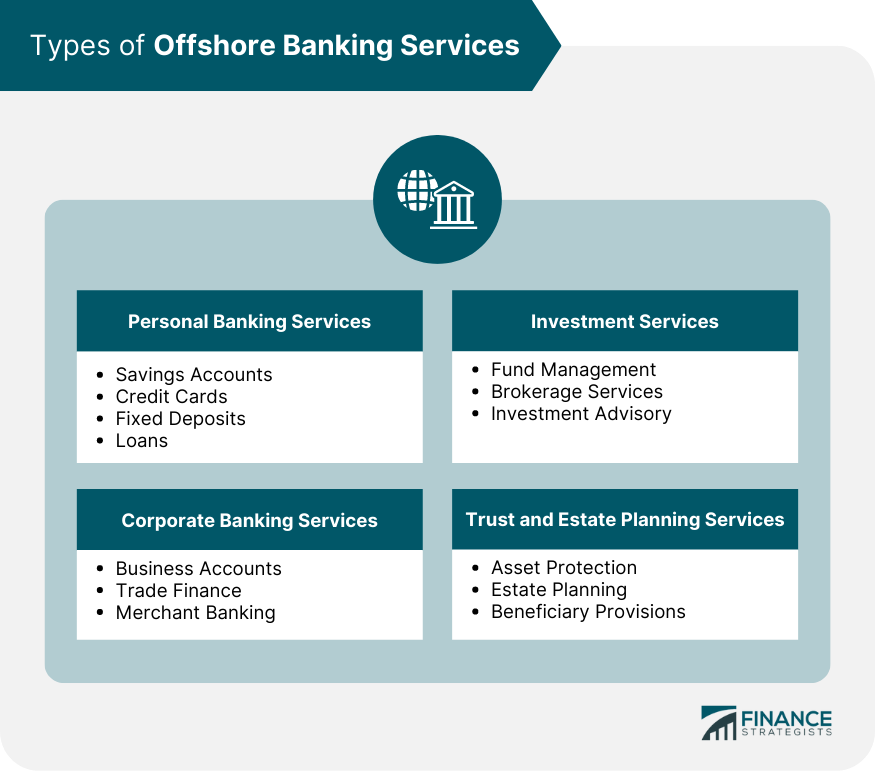Offshore Company Formations Costs Breakdown: What to Expect
Demystifying Offshore Business Formations: Just How They Operate and What to Anticipate
Offshore company formations can appear complicated and enigmatic. Offshore Company Formations. These entities, commonly developed for tax obligation advantages and personal privacy, operate under one-of-a-kind legal frameworks. Entrepreneurs might find themselves navigating via a labyrinth of laws and compliance requirements. Recognizing the intricacies is necessary for success. What are the real advantages? What are the prospective challenges? A closer evaluation exposes the subtleties that can impact decision-making substantially
Understanding Offshore Firms: Types and interpretations
Offshore business are entities established in a jurisdiction beyond an individual's or company's primary nation of house, usually for functions associated with tax obligation optimization, property defense, or regulative benefits. These business can take various types, including minimal obligation companies (LLCs), worldwide company companies (IBCs), and offshore trust funds. Each kind offers details features and appeals to various demands.
Minimal obligation companies give owners with security from personal responsibility, while international service companies are popular for their adaptability and minimal coverage requirements. Offshore depends on, on the various other hand, are utilized largely for estate planning and possession defense.
The choice of territory substantially affects the company's operations, as some places supply extra positive legal frameworks and personal privacy protections. Offshore Company Formations. Understanding the distinctions in between these types is essential for businesses and individuals thinking about offshore frameworks, as each option carries different effects for administration and compliance
The Advantages of Establishing an Offshore Company
Establishing an offshore company can supply many benefits, particularly for those looking for to boost their financial strategies and secure their properties. One significant advantage is tax obligation optimization; numerous jurisdictions use desirable tax obligation prices or exceptions, permitting services to maintain even more revenues. Furthermore, overseas business can provide a layer of personal privacy, shielding the identifications of owners and shareholders from public analysis.
Another advantage is asset defense. By positioning possessions in an offshore entity, individuals can secure their riches from prospective legal claims or political instability in their home nations. This framework additionally promotes global service operations, enabling easier accessibility to varied clientele and global markets.
The establishment of an overseas business can boost trustworthiness and eminence, appealing to clients that value international company techniques. Overall, these benefits make offshore company formations an appealing option for people and services going for monetary development and safety.
Key Factors To Consider Before Creating an Offshore Entity
Before creating an overseas entity, numerous important elements have to be examined. Lawful compliance needs, tax implications and advantages, as well as jurisdiction selection, play a significant duty in the decision-making process. Comprehending these factors to consider can help businesses and individuals browse the complexities of offshore company formations properly.

Legal Compliance Requirements
When taking into consideration the development of an offshore entity, comprehending lawful compliance demands is necessary to guarantee adherence to both neighborhood and worldwide legislations. Prospective business proprietors must acquaint themselves with regulations regulating company registration, reporting commitments, and operational criteria in the selected territory. This includes validating the legal needs for supervisors and shareholders, along with making certain conformity with anti-money laundering (AML) and know-your-customer (KYC) policies. Furthermore, services need to stay knowledgeable about any licensing demands certain to their sector. Engaging regional lawful and economists can give useful understandings, making sure that all needed paperwork is prepared and submitted appropriately. Ultimately, complete expertise of legal conformity helps alleviate threats and cultivates a sustainable offshore operation.
Tax Implications and Benefits
Many organization proprietors consider the tax ramifications and benefits of forming an offshore entity as a crucial aspect in their decision-making procedure. Offshore business can supply substantial tax obligation benefits, such as minimized corporate tax obligation prices, exemption from certain neighborhood taxes, and the ability to delay taxes on international revenue. These benefits can bring about improved profitability and capital, making overseas structures appealing for global company operations. Additionally, the potential for tax obligation treaties might further minimize tax obligation responsibilities. It is crucial for organization proprietors to understand the intricacies included, including compliance with both local and worldwide tax obligation regulations. Involving with tax experts is a good idea to browse these ins and outs effectively and guarantee optimal tax obligation preparation strategies.
Jurisdiction Choice Variables
What elements should one think about when picking a territory for offshore firm development? Secret factors to consider consist of tax effectiveness, regulatory setting, and political stability. Territories with beneficial tax obligation programs can significantly influence earnings. The governing landscape ought to supply flexibility and ease of conformity, enabling for effective business procedures. Political stability is essential, as it guarantees the safety and security of assets and continuity of procedures. Additionally, the online reputation of the territory can impact client depend on and service connections. Availability to banking solutions and the schedule of professional support solutions are additionally vital. Finally, comprehending regional regulations regarding ownership, reporting, and privacy needs is vital to identify that the offshore entity straightens with business owner's official source objectives and lawful obligations.
The Refine of Establishing an Offshore Company
Establishing up an offshore business involves a collection of strategic steps that need mindful planning and compliance with global policies. An individual need to choose an ideal territory that aligns with their organization goals and offers desirable tax benefits. Complying with territory option, the next step is to select an unique firm name and prepare the needed documentation, consisting of articles of unification and shareholder contracts.
When read this post here the documentation is all set, it should be sent to the relevant authorities together with the called for fees. After authorization, the firm will get a certification of consolidation, formally developing its lawful presence. The individual need to after that open a business savings account to assist in economic purchases.
Preserving an offshore business entails sticking to ongoing compliance demands, such as annual reporting and tax commitments, which vary by jurisdiction. Comprehending each action is essential for a successful offshore company formation.

Regulative and legal Framework for Offshore Companies
While establishing an overseas firm can supply considerable benefits, it is important to maneuver through the complex lawful and regulative framework that regulates such entities. Each territory has its own set of laws that determine every little thing from firm formation to taxation and compliance needs. These policies are made to protect against unlawful activities, such as cash laundering and tax evasion, and typically require thorough paperwork and transparency.
Crucial element of this framework consist of the requirement of designating regional directors, keeping an authorized office, and sticking to annual coverage responsibilities. Additionally, many territories impose details licensing demands for specific business activities. Recognizing these legal specifications is important for guaranteeing compliance and mitigating dangers connected with fines or legal disagreements. Involving with lawful professionals who specialize in offshore business can help in navigating with this detailed landscape, inevitably facilitating a certified and effective offshore business procedure.
Usual Misconceptions Regarding Offshore Business
Many individuals hold misconceptions about offshore business, often equating them with tax evasion and unlawful activities. It is essential to recognize that these entities can run lawfully within a framework designed for legit service methods. Clarifying the lawful condition of offshore companies can aid dispel these myths and promote a more accurate understanding of their objective.
Tax Obligation Evasion Misconceptions
In spite of the expanding appeal of overseas business, false impressions concerning their usage for tax evasion linger. Lots of people wrongly believe that establishing an overseas entity is only a way to stay clear of tax obligations. Nonetheless, offshore firms are commonly made use of for legitimate functions, such as property protection, worldwide service expansion, and financial investment diversification. The perception that all overseas activities relate to illicit tax obligation evasion forgets the complexities of worldwide tax obligation policies and conformity needs. Additionally, the useful link large majority of overseas territories have actually implemented measures to combat tax obligation evasion, promoting transparency and info exchange. This mischaracterization can deter reputable companies and capitalists from checking out the prospective benefits of overseas company formations while bolstering a negative stigma bordering these entities.
Legal Standing Clarified
The legal condition of overseas companies is usually misinterpreted, leading to a range of misunderstandings. Numerous think these entities operate in a legal gray location, assuming they are inherently unlawful or underhanded. Actually, offshore business are legit services formed under the laws of certain territories, made for numerous factors, consisting of property protection and market development. An additional usual misunderstanding is that offshore firms escape taxes completely; nonetheless, they undergo the regulations and tax responsibilities of their home countries. Furthermore, some individuals assume that offshore firms can be quickly exploited for cash laundering or illegal activities. While abuse can take place, many jurisdictions apply strict conformity and transparency legislations to reduce such dangers, guaranteeing that offshore companies operate within lawful structures.

Managing and Running Your Offshore Business Effectively
Successfully taking care of and running an overseas company requires a tactical technique that stabilizes conformity with neighborhood regulations and the pursuit of organization goals. Successful offshore administration entails understanding the jurisdiction's tax regulations, reporting needs, and functional laws. Employing local professionals, such as accounting professionals and lawful experts, can provide indispensable understandings right into going across these complexities.
In addition, developing clear interaction networks and functional procedures is crucial for maintaining efficiency. Making use of technology for task administration and partnership can improve productivity, while regular performance evaluates assurance alignment with critical objectives.
Keeping durable monetary records is important, as openness cultivates depend on with stakeholders and complies with global requirements. Finally, being adaptable to adjustments in regulations or market conditions permits overseas business to pivot successfully, ensuring long-term sustainability and development. By adhering to these concepts, company owner can make the most of the advantages of their overseas ventures while mitigating dangers.
Frequently Asked Inquiries
Just how much Does It Price to Preserve an Offshore Company Every Year?
The expense to preserve an overseas business each year varies substantially, normally ranging from $1,000 to $5,000, relying on territory, solutions required, and conformity commitments. It is vital to consider added costs for details requirements.
Can I Open a Checking Account for My Offshore Business From Another Location?
Opening a checking account for an offshore firm remotely is normally feasible. However, demands might vary by jurisdiction, usually necessitating paperwork and confirmation processes, which can complicate the remote application experience for individuals.
Exist Details Nations Understood for Easier Offshore Business Formations?
Specific countries, such as Belize, Seychelles, and the British Virgin Islands, are renowned for their positive guidelines and streamlined processes concerning offshore company formations, drawing in entrepreneurs looking for performance and privacy in organization operations.
What Sorts of Organizations Are Finest Suited for Offshore Business?
Particular companies, such as shopping, working as a consultant, and financial investment companies, commonly benefit from offshore firms because of tax benefits, privacy, and governing versatility - Offshore Company Formations. These entities typically grow in jurisdictions that advertise positive company atmospheres
Just How Can I Ensure Conformity With Regional Legislations When Running Offshore?
To ensure conformity with neighborhood regulations when operating offshore, it is crucial to involve legal professionals, conduct complete study on jurisdiction guidelines, and maintain transparent monetary documents, thus decreasing risks related to non-compliance.
